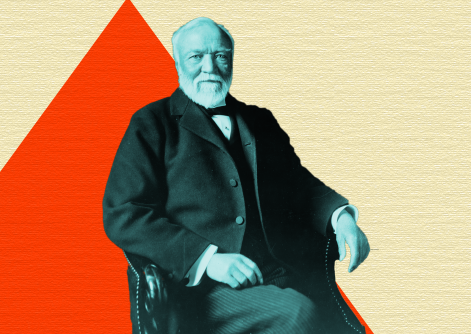“A blockbuster congressional investigation of campaign finance activities by corporations, trade associations, and high net worth individuals may be coming,” warns Covington & Burling, a law firm that specializes in electoral work.
While the firm would, of course, like to motivate clients to hire it by painting a grim picture of the current situation, it may be on to something. Its latest report adds that not only 501(c)(4) groups and trade associations may be Congressional targets, but also 501(c)(3) nonprofits.
Covington admits that many tactics have been tried unsuccessfully to force more disclosure of “political” giving, including the DISCLOSE Act, FEC complaints, etc. But more recently the chairman of the Senate Permanent Subcommittee on Investigations, Carl Levin (D-Mich.), has announced he will “tackle … the use of secret money to fund political campaigns.”
Levin is notoriously tough, and his new ranking member on the other side of the aisle is Sen. John McCain (R-Ariz.), who is famous for his willingness to have Congress restrict political speech. As Covington drolly observes,
Investigations in which the Democratic and Republican staffs are working in concert often carry the greatest risks for outside interests.
Covington notes that Congress believes that it need not respect attorney-client privilege when it investigates, and that it may “compel production of privileged documents or testimony,” which Members then feel free to make public in order to humiliate their targets.
Sensitive information that Covington believes Levin and McCain may demand includes
● the confidential, non-public portions of a tax-exempt group’s 990 filings
● documents supporting the target’s tax filings
● documents relating to its political activities and contributions
● communications between tax-exempt groups and members/donors
Chairman Levin enjoys unilateral authority to issue subpoenas, and Covington adds that when the Subcommittee recently investigated a major bank, Democratic and Republican committee staff worked hand in glove.
To understand what disclosure advocates seek, Covington suggests we consider these past efforts:
● The increased corporate political disclosure required in the unsuccessful DISCLOSE Act, introduced by Sen. Sheldon Whitehouse (D-R.I.) and cosponsored by nearly half the Senate.
● Attacks on regs from the Federal Elections Commission (FEC) that currently limit disclosure, including a DC federal court challenge by Rep. Chris Van Hollen (D-Md.).
● Complaints to the FEC that allege certain nonprofits have failed to register as a political committee (e.g., Public Citizen’s attack on Karl Rove’s Crossroads GPS)
● Encouraging the IRS to change its existing regs so as to further restrict political activities by nonprofits, something the agency announced last September it would consider.
● Promoting shareholder resolutions that require publicly held companies to disclose contributions to tax-exempt groups (see this model resolution from the Center for Political Accountability).
● Suing publicly held companies under state law on behalf of shareholders, alleging a right to see the company’s books and contribution records (Covington notes that it recently represented chipmaker Qualcomm in just such a suit, which ended in Qualcomm’s agreeing to disclose its contributions).
● Pressuring the SEC for new rules requiring publicly held companies to disclose their contributions.
● Urging more disclosures via the Federal Communications Commission’s regs on TV ads, as Sen. Bill Nelson (D-Fla.) has requested.
Note that the activists demanding more disclosure and regulations especially target corporations. So far as I know, the same activists are blithely indifferent to unions’ electioneering and have raised no criticism of the Obama administration’s roll-back of efforts by the Department of Labor to require more disclosure of what unions do with the monies they take from members.
This silence on unions is odd, since they are at least as influential in elections as corporations, and unlike corporations, unions are far more focused in their giving; for example, they are far more likely to give to one party than corporations are. Unions also often fail to meet existing legal requirements for their general financial disclosures. As James Sherk and Rudy Takala report, the Department of Labor's Inspector General released an audit last year that found "the Department's Office of Labor Management Standards (OLMS) is missing most violations of union financial disclosure requirements."
In all, Sherk and Takala note, "92 percent of the unions that were audited violated regulations, yet the OLMS failed to report 76 percent of those violations because of their flawed reporting standards." Worse, "OLMS has dramatically cut back on its audits. Despite frequently finding criminal violations, the Obama Administration cut the number OLMS audits by almost 40 percent between 2009 and 2011."
While I personally dislike lots of giving by corporations – especially when they try to use government to favor themselves over their competitors – at least every dollar a corporation spends in elections was given to it voluntarily by a customer or a lender. That stands in stark contrast to the hundreds of millions spent by unions, money that is largely the product of coercion.
Over 90 percent of today’s private-sector union members have never been able to vote even once on whether to be represented by a union, and millions of union members would be forced out of their jobs if they stopped paying dues and/or fees to their union. Nor do unions disclose the enormous amount of in-kind contributions they make to political campaigns. Unions also collude with supposedly “nonpartisan” 501(c)(3)s and (c)(4)s to register voters and get out the vote on election day.
For that matter, unions and their pension funds are colluding with Democrats in some of the efforts listed above to force corporate disclosure. The shareholder lawsuit against Qualcomm, for example, was brought by the sole trustee of the 150-billion-dollar New York State Common Retirement Fund, the pension fund for New York’s government employees, whose rate of unionization is the highest in the nation at around 70 percent. And who is that sole trustee? State comptroller Thomas DiNapoli, an elected Democrat from a union family who won his current office on the ballot lines of both the Democratic Party and New York’s Working Families Party, which was founded in 1998 by several unions and ACORN (an organization linked to electoral fraud in numerous states).
Call me a cynic, but I suspect these one-sided demands for more disclosure of political spending arise less from a desire for clean politics than from an old-fashioned, dirty political hope of weakening one’s opponents.
FOOTNOTE: I've written at length on the issues raised by forced disclosure of nonprofit donors here.






“So far as I know, the same activists are blithely indifferent to unions’ electioneering and have raised no criticism of the Obama administration’s roll-back of efforts by the Department of Labor to require more disclosure of what unions do with the monies they take from members.
This silence on unions is odd,”
ODD? It’s revolting. Unions are run by socialists, socialists are simply communists in lamb’s clothing, communists are fit to buried in unmarked graves.
We need hackers to unearth every Union’s finances and donations.